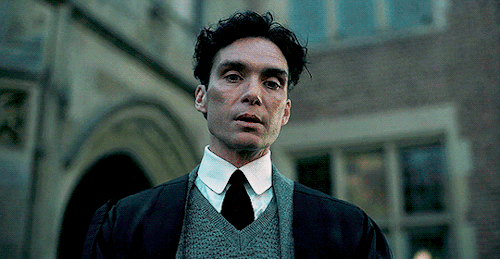Be Kind To That Adult Who Never Speaks At Work, Who’s Strangely Quiet At Parties And Dos.
be kind to that adult who never speaks at work, who’s strangely quiet at parties and dos.
be kind to the people who never smile, who seem stuck-up, emotionless or cold.
be kind to the person who only speaks when spoken to. who speaks in a very soft or quiet vocie. who speaks awkwardly and painfully.
tell them it’s okay if they can’t speak. tell them you care about them anyway. show them you see their talents.
support people with situational mutism. 🌹🌹
More Posts from Sayaosi and Others




The Shining (1980) Hannibal (2013-2015)
Kazu-kun & Chizuru


I talked about Kazu-kun last time, and now I wanted to talk about how his character mirrors Chizuru's.
They are both close friends of Sakuko who fall in love with her. Which obviously is a problem since Sakuko is aroace and not interested in dating her friends.
And I want to talk about how they are almost perfect opposite of each other.
Kazu-kun struggles a lot to understand how Sakuko can be uninterested in love, and gets pushy about it (refusing to let her break up with him, moving in and asking invasive questions). Chizuru has known (and accepted) for a long while that Sakuko isn’t interested in love and therefore that her feelings would never be reciprocated.And because the show already has Kazu-kun to explore the amatonormativity-is-a-bitch side of things, Chizuru gets to just be an example of a very common tragedy of human relationship — sometimes you just don’t want the same thing, and it’s sad but there is nothing to do about it.
Kazu-kun is very clear about his feelings for Sakuko, to the point of making them everyone else’s problem. Chizuru hides her feelins for Sakuko to avoid bothering her with them, to the point nobody knows they even exist.
Kazu-kun does everything he can to stay at Sakuko’s side, including forcing his way into moving in with her and refusing to let her break up properly. Chizuru cuts off contact, moves away and changes her number.
The first thing I want to talk about is how this is so very clearly a gendered dynamic.
Kazu-kun, has I’ve said already, starts off as a very Entitled Straight Man™. And that informs everything he does in how he treats his feelings to Sakuko. He expects his feelings to be returned the same way most straight men are taught they’re owned women’s attention. He wants to be present in her life and he wants answers to his questions and he has very little qualms about how he gets what he wants, because once again men are taught they deserve women but rarely to care how their actions make others feel.
On the other hand, Chizuru is not only a woman, but she’s also a shappic woman in love with another woman. Both these things heavily influence how she deals with her feelings for Sakuko.
Firstly, she’s a woman. She has most likely been taught not to bother anyone with her feelings, while learning to be mindful of other people’s feelings. She’s also aware that unwanted romantic attention can hurt, in a way most men aren’t. She’s of course especially aware of it in relation to Sakuko, since she’s known her for years and knows very well Sakuko isn’t interested in love with anyone.
Secondly, she’s a woman in love with another woman. And like a lot of other sapphic women, she’s afraid of her attraction to women being invasive, dirty, or predatory. It’s particularly true here because Sakuko is a long-time friend, so attraction can feel like it’s “tainting” an otherwise “pure” friendship, or “invading” with “dirty feelings” what was supposed to be a safe space; and because Sakuko is AroAce, which in this perspective makes her even more “pure”, and therefore makes the “stain” even more unforgivable.
Hence why she runs away and cut all ties with Sakuko — when Kazu-kun doesn’t, even though he’s facing the same unrequited-love situation.
So yes, the dynamic between Kazu-kun and Chizuru is 100% a gendered dynamic. They could have had the same parallels with two men, but it would have felt and read very differently.
The second thing is: in the end, the both hurt Sakuko.
Chizuru, by desperately trying not to impose her feelings on Sakuko, still imposes her decision to leave and cut ties. Sakuko is hurt when their plans to live together fall through, worried when she can’t reach Chizuru, and hurt again when Chizuru explains why she cut ties and that they can’t go back to being friends (yet).
Kazu-kun drags her into a relationship she doesn’t actually want, then refuses to break up with her, then invades her privacy. Sakuko ends up needing to be the one to officially break up which hurts her too (though Kazu-kun accepts it with grace and keeps being her friend).
Even though they had opposite ways to deal with their feelings for Sakuko, they both did it in a way that worked for themselves without asking Sakuko’s input, and ended up hurting her in the process.
It’s the illustration of a very old fear of mine, that I believe is fairly common among aros : loosing friends because they fell in love with me. It’s not a fear exclusive to aros; it’s the driving tension in almost all friends-to-lovers stories; but it’s very prevalent in the aro community for obvious reasons.
It’s also an example of how amatonormativity fucks up relationships. Both Kazu-kun and Chizuru are first acting under the idea that romantic love comes first and is more important than anything else — that it justifies breaking up a very close friendship with no explanation or invading someone else’s privacy.
But thirdly, having two parallels situations also allows for nuances.
I have talked a lot about amatonormativity in these analysis, for very good reasons (such as it being the show’s main theme). But it’s not the end-all be-all. Even in a perfect society with no stupid rules and expectations, people’s feelings would still be messy and hurt sometimes. And having two different relationships to explore the friend-falls-in-love-with-your-aro-ass-what-do-you-do allows the show a real space for nuances.
Sometimes deconstruction works. Sometimes you take a step back and realize most of your problems came from assumptions and rules that have no real basis, and you’re able to work through them.
Kazu-kun does come to the realization that things can be done differently, which is shown when he asks Sakuko to be in a QPR with him instead of a romantic relationship. It’s him realizing that while their feelings may never be the same, they could make a relationship work if they focus on what they actually want to do together — for example, they enjoy karaoke together as new colleagues, as lovers, and as situationship-it’s-complicated-we’re-maybe-on-a-break. And when Sakuko refuses, he’s the one reassuring that they can stay friends, because he now understands that they can keep enjoying karaoke as friends.
But sometimes feelings are just messy. Sometimes even once the air is cleared you still hurt. Sometimes you don’t feel and want the same things and no amount of deconstruction or compromise will solve that.
Chizuru is still hurting that her feelings aren’t and will never be reciprocated. And the show allows her that. She hurt Sakuko, yes, but the situation is unfair to both of them. They don’t want the same thing and it’s hurting both of them and no one is really in the wrong.
Could Chizuru have dealt with the situation better? Obviously yes. Is there amatonormativity (and probably some internalized homophobia) at play? Yes of course. But even outside of all that, there are still tangled, hurting feelings.
And because the show already has Kazu-kun to explore the amatonormativity-is-a-bitch side of things, Chizuru gets to just be an example of a very common tragedy of human relationships — sometimes you just don’t want the same thing, and it’s sad but there is nothing to do about it.
And Chizuru does say that she wants to go back to cutting Sakuko’s hair, to be her friend. But she needs the space to sort her feelings first.
*a male and female character have a nice close platonic relationship that doesn't indicate any romance at all*
Me: Oh I am HERE for this!
*whoops, they fell in love*
Me: I'll be on my way.










You think disaster just falls over the sky? No. We have come step by step towards this fate.
FAREWELL MY CONCUBINE 霸王別姬 (1993, Chen Kaige)

The thing about Wes Anderson's films is that I don't always connect with the stories he is telling, but by fucking god do I appreciate the craftmanship that went into making them.
Baby Reindeer is a masterpiece. Anyone who can handle the content should watch it. These stories need to be told.
gotta love his dark curly wurly hair








Cillian Murphy in Oppenheimer (2023) dir. Christopher Nolan
Say what you want about Saltburn but the color aesthetics are amazing. Some of the cinematography is almost ethereal. The movie is 50 shades of fucked up but the setting was beautiful!
Also.... Everyone is talking about the bathtub scene and the grave scene, but the menstruation vampire scene had me crossing my legs and scrunching my face into a knot.
I watched Dear Ex a couple of days ago because it had been recommended in a lot of LGBTQ Taiwanese film lists to me. And it was a good film. But what I found really interesting was how the film’s thesis statement about motherly love is ultimately one I think a lot of queer people, especially queer people who grew up in cultures emphasising filial piety, could find really cathartic.
In the film, there’s a teenage boy who decided to live away from his overbearing mother with a gay man (who was also his dad’s lover; the gay man functions as a sort of stepfather figure to him now since his dad passed away). And as revenge, his mom outed the man to his elderly mother, assuming that it would ruin their relationship (earlier the elderly woman also expressed confusion and admitted to not really ‘getting’ queer relationships too, which supported the assumption). She also spends much of the film helicopter parenting her son. Which her teenage son makes clear that he dislikes.
Later on in the film, mother and son go and see a play that the gay man directed and acted in. The play bombed. But at the very end, the gay man’s elderly mother was there, and gave him a bouquet of flowers and hugged him. The film ends with the teenage boy living with the gay man now, and his mother visiting from time to time. The teenage boy and his mother’s relationship is also shown to have greatly improved.
And I found this interesting, because ultimately, the thesis statement (or at least one interpretation one can derive from it) of the film is about motherly love. Or more specifically, how sometimes a mother can best show her love by stepping aside and allowing her child to live their life according to what they believe is right for them.
And I think this message is something that I think can resonate with a lot of queer people, because I think one of the big pains that a lot of queer people face in their lives is unaccepting families. Families who do expect something out of their child without giving them the freedom to live their life. Especially in a society like Taiwan, where children are very heavily expected to be filial to their parents. To have a film talk about motherly/parental love in such a manner - that the mothers eventually stepped back and allowed their children to be themselves and live their lives - would be very cathartic for a lot of queer people.
-
 lilbanas reblogged this · 4 weeks ago
lilbanas reblogged this · 4 weeks ago -
 boredcarcass liked this · 1 month ago
boredcarcass liked this · 1 month ago -
 merrycure liked this · 1 month ago
merrycure liked this · 1 month ago -
 dailyjuppet liked this · 1 month ago
dailyjuppet liked this · 1 month ago -
 magicstar16 reblogged this · 1 month ago
magicstar16 reblogged this · 1 month ago -
 teamredlvr liked this · 1 month ago
teamredlvr liked this · 1 month ago -
 sugergliderjr liked this · 1 month ago
sugergliderjr liked this · 1 month ago -
 powpow-22 reblogged this · 1 month ago
powpow-22 reblogged this · 1 month ago -
 powpow-22 liked this · 1 month ago
powpow-22 liked this · 1 month ago -
 sonuvablitz liked this · 1 month ago
sonuvablitz liked this · 1 month ago -
 t-essell reblogged this · 1 month ago
t-essell reblogged this · 1 month ago -
 ilsimizi liked this · 2 months ago
ilsimizi liked this · 2 months ago -
 lune-versatile liked this · 2 months ago
lune-versatile liked this · 2 months ago -
 maximsthings reblogged this · 2 months ago
maximsthings reblogged this · 2 months ago -
 maximsthings liked this · 2 months ago
maximsthings liked this · 2 months ago -
 leodoriya reblogged this · 2 months ago
leodoriya reblogged this · 2 months ago -
 leodoriya liked this · 2 months ago
leodoriya liked this · 2 months ago -
 learningthroughdreaming reblogged this · 2 months ago
learningthroughdreaming reblogged this · 2 months ago -
 milesmoraleskin liked this · 4 months ago
milesmoraleskin liked this · 4 months ago -
 erdesse liked this · 4 months ago
erdesse liked this · 4 months ago -
 knightpetrichor liked this · 4 months ago
knightpetrichor liked this · 4 months ago -
 crowtidestrider liked this · 4 months ago
crowtidestrider liked this · 4 months ago -
 xcassiebullockx reblogged this · 4 months ago
xcassiebullockx reblogged this · 4 months ago -
 cosmossystem liked this · 4 months ago
cosmossystem liked this · 4 months ago -
 akapictorem liked this · 4 months ago
akapictorem liked this · 4 months ago -
 aaavoidant reblogged this · 5 months ago
aaavoidant reblogged this · 5 months ago -
 pyromint reblogged this · 5 months ago
pyromint reblogged this · 5 months ago -
 anniakeller liked this · 5 months ago
anniakeller liked this · 5 months ago -
 ravinight liked this · 5 months ago
ravinight liked this · 5 months ago -
 ot5txtstan liked this · 5 months ago
ot5txtstan liked this · 5 months ago -
 itsamebutnotmario liked this · 6 months ago
itsamebutnotmario liked this · 6 months ago -
 human2106 liked this · 6 months ago
human2106 liked this · 6 months ago -
 rott1ngstar liked this · 6 months ago
rott1ngstar liked this · 6 months ago -
 saintbia liked this · 6 months ago
saintbia liked this · 6 months ago -
 hyperfixation-station-2442 liked this · 6 months ago
hyperfixation-station-2442 liked this · 6 months ago -
 chawhawhaw97 liked this · 7 months ago
chawhawhaw97 liked this · 7 months ago -
 tsukishyy liked this · 7 months ago
tsukishyy liked this · 7 months ago -
 starryroseart reblogged this · 7 months ago
starryroseart reblogged this · 7 months ago -
 starryroseart liked this · 7 months ago
starryroseart liked this · 7 months ago -
 maimebowz liked this · 7 months ago
maimebowz liked this · 7 months ago -
 artemisamoon liked this · 7 months ago
artemisamoon liked this · 7 months ago -
 amethyst549 liked this · 7 months ago
amethyst549 liked this · 7 months ago -
 eleanorandphantom liked this · 7 months ago
eleanorandphantom liked this · 7 months ago -
 our-hearts-are-connected reblogged this · 7 months ago
our-hearts-are-connected reblogged this · 7 months ago -
 jennyfair7 liked this · 7 months ago
jennyfair7 liked this · 7 months ago -
 unusualmuffin-art reblogged this · 7 months ago
unusualmuffin-art reblogged this · 7 months ago -
 unusualmuffin-art liked this · 7 months ago
unusualmuffin-art liked this · 7 months ago -
 alchemilliam reblogged this · 8 months ago
alchemilliam reblogged this · 8 months ago -
 alchemilliam liked this · 8 months ago
alchemilliam liked this · 8 months ago

She/her | 22 | 🩷💛🩵-💚🩶🤍🩶💚Blogging about my various interests including TV shows, film, books, video games, current events, and the occasional meme. My letterboxed: https://boxd.it/civFT
123 posts